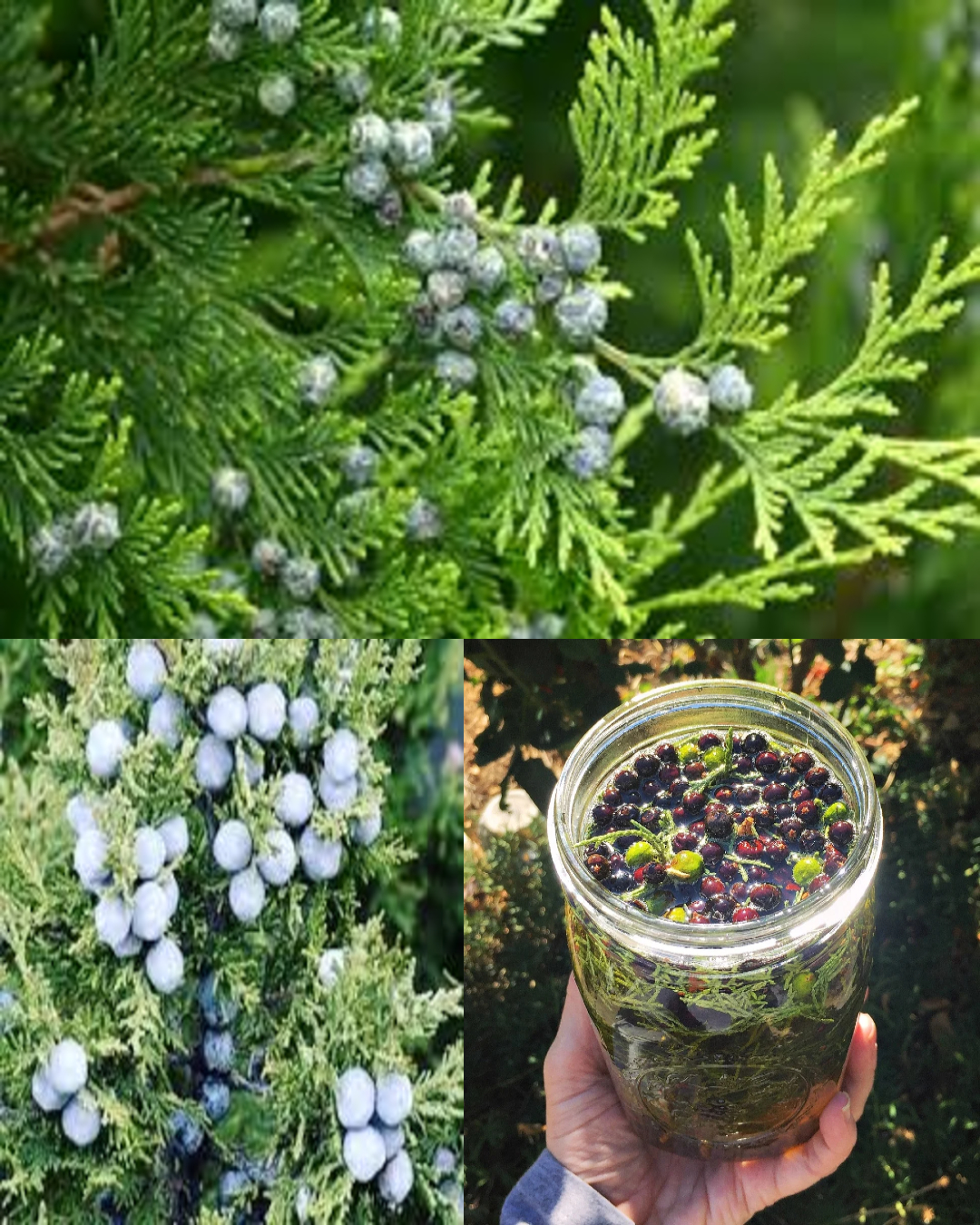Juniper (scientifically known as Juniperus) is a versatile plant that has been used for centuries in both traditional medicine and culinary practices. From juniper berries to juniper essential oils, this remarkable herb is packed with health benefits, and its uses go beyond just being a flavoring agent in gin. Let’s dive into the amazing benefits and uses of juniper!
🔍 What Is Juniper?
Juniper is an evergreen shrub found in many parts of the world. It produces small berries that turn a deep blue or purple when ripe. These berries contain essential oils and compounds that make them a powerful natural remedy.
🌱 Health Benefits of Juniper
1️⃣ Detoxifies the Body
✅ Juniper is known for its diuretic properties, helping to flush toxins out of the body.
✅ It promotes kidney health and may reduce water retention.
2️⃣ Boosts Immunity
✅ Packed with vitamin C, juniper helps strengthen the immune system.
✅ It also has antibacterial and antifungal properties, making it useful for fighting infections.
3️⃣ Improves Digestion
✅ Juniper stimulates appetite and can aid in digestion.
✅ It helps relieve indigestion, bloating, and gas.
4️⃣ Relieves Arthritis Pain
✅ The anti-inflammatory properties of juniper make it useful for soothing joint pain and reducing inflammation from conditions like arthritis.
5️⃣ Supports Skin Health
✅ Juniper essential oil is known for its ability to combat acne, eczema, and other skin conditions.
✅ Its antioxidant properties help protect the skin from free radical damage.
6️⃣ Improves Circulation
✅ Juniper can help increase blood flow, improving overall circulation and reducing the risk of heart disease.
7️⃣ Relieves Stress & Anxiety
✅ Juniper essential oil is commonly used in aromatherapy to reduce stress and promote relaxation.
✅ It has a calming effect on the nervous system.
8️⃣ Regulates Blood Sugar
✅ Some studies suggest juniper may help regulate blood sugar levels, making it beneficial for diabetes management.
🍽️ Culinary Uses of Juniper
- Flavoring in Foods: Juniper berries are often used in cooking (particularly in European cuisines) to flavor meats like venison, pork, and sauces.
- Gin: The most well-known use of juniper berries is in the production of gin, where they provide the distinctive taste.
💧 How to Use Juniper
1️⃣ Juniper Tea
✅ Steep 1–2 teaspoons of dried juniper berries in hot water for 10–15 minutes.
✅ Drink to relieve digestive issues or as a detoxifying tea.
2️⃣ Juniper Essential Oil
✅ Add a few drops of juniper essential oil to a diffuser to relieve stress or promote relaxation.
✅ Mix it with a carrier oil (like coconut oil) and massage onto sore muscles for arthritis pain relief.
✅ Apply diluted juniper oil to acne-prone skin for its antibacterial benefits.
3️⃣ Juniper Berries
✅ Crush or grind juniper berries and sprinkle them over roasted meats, soups, or sauces for a flavorful kick.
✅ Make a juniper-infused vinegar to drizzle on salads.
4️⃣ Juniper in Bath Water
✅ Add juniper essential oil or juniper berries to your bath for a relaxing soak that soothes sore muscles and reduces stress.
⚠️ Precautions
- Pregnancy: Juniper should be avoided during pregnancy as it may cause uterine contractions.
- Kidney Health: Since juniper is a diuretic, individuals with kidney disease should consult a healthcare provider before using juniper.
- Allergic Reactions: Some people may experience allergic reactions to juniper. It’s important to do a patch test before using juniper oil on the skin.
🌿 Final Thoughts
Juniper is a multipurpose plant with amazing health benefits that go beyond its use in gin-making. Whether you’re looking to detox, improve your digestion, soothe your skin, or relieve joint pain, juniper can be a natural and powerful addition to your wellness routine. Always remember to consult a healthcare provider if you’re unsure about its usage, especially if you have underlying health conditions.
🌟 Have you ever used juniper before? How do you incorporate it into your routine? Let me know! 👇 #JuniperBenefits
